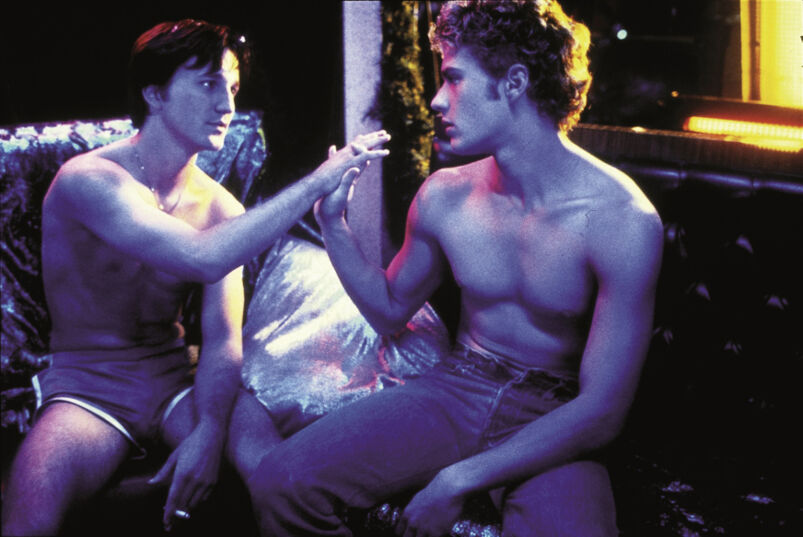
Welcome back to our queer film retrospective, “A Gay Old Time.” In this week’s column, we’re celebrating the dawn of the new year with 1998’s 54, taking us back to one of history’s most infamous parties.
New Year’s Eve is a holiday that comes as a major contrast to the days immediately before it. After meaningful time with loved ones, religious rituals, and days of reflection, it seems like NYE is an excuse to throw everything out the window and dance the night away one last time. Family dinners are swapped for sweaty dance floors, and gifts are exchanged for midnight kisses.
This week, before we ring in 2024, we revisit 1998’s 54, the cult classic movie that brings us inside the most famous disco club in history. Because people in the 1970s understood that the best (and queerest) way to ring in a new year is covered in glitter, surrounded by shirtless bartenders, as many love stories, friendships, and dreams are formed and fall apart all around you.
Your dose of fabulosi-TEA
Subscribe to our newsletter for your front-row seat to all things entertainment with a sprinkle of everything else queer.
The Set-Up
Director Mark Christopher’s 54 follows Shane O’Shea (played by a young, never more handsome, and never twinkier Ryan Phillippe), a New Jersey party boy whose dream is to make it to the legendary nightclub across from the river.
After braving the famously strict and selective line outside, and being personally selected (and immediately objectified) by club owner Steve Rubell (Mike Myers), Shane lands a job in the club as a busboy. He starts forming close friendships, rivalries, and romances with other members of the staff, as the glitz and glamor of the place slowly get to him.
Some of these people include coat check girl and aspiring songstress Anita (a vibrant and sparkling Salma Hayek) and her jealous boyfriend who dreams of one day becoming a bartender, Greg (Breckin Meyer); TV superstar Julie Black (Neve Campbell) who goes to the club to escape, Shane’s sister who slowly watches his downward spiral (Heather Matarazzo), and Disco Dottie (Ellen Albertini Dow), an elderly lady who decided to spend her final days letting go on the dance floor.
A Disco Time Capsule
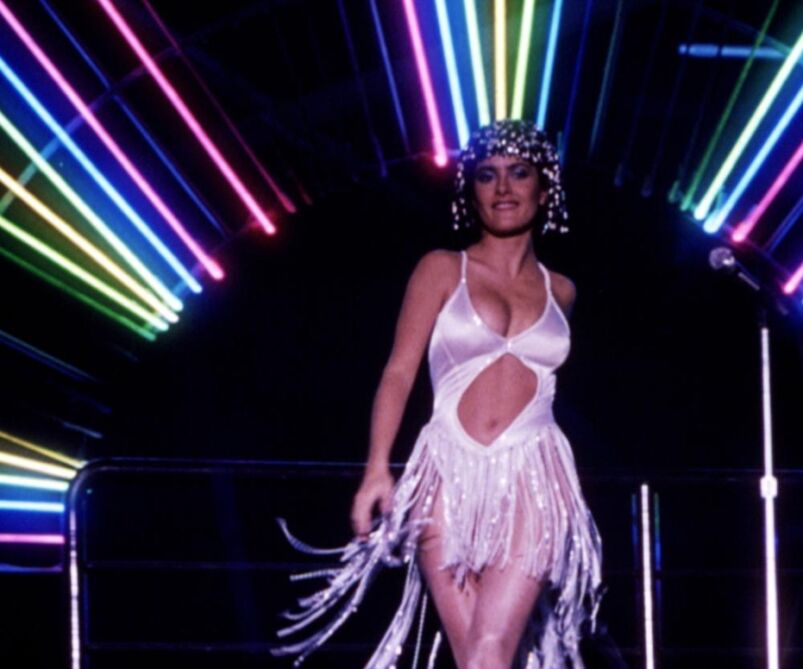
Although Shea is the clear protagonist and our entry into this underworld, the movie is an eclectic collection of characters and plot lines that paint a comprehensive picture of what the peak of disco culture was like in the 1970s, at the epicenter everything revolved around.
54 does a great job at showcasing exactly why people from all over the world gravitated to this place: the sense of stepping into a new reality the moment you walk through the doors, the intoxication of the music beats and pouring alcohol, and the immediate sense of safety and community that existed between patrons and staff alike. No wonder the queer community was so enamored with this place.
Showstopping Ensemble
O’Shea works very effectively as a point-of-view character, serving as the audience surrogate to infiltrate and eventually descend into a world of endless partying, drugs, and escapism. However, his journey and character traits are sometimes a bit expected and cliché: the golden boy that starts off as too naive for the big dangers of the city and gets swallowed whole by it. Glimpses of more interesting aspects of him—or more compelling characters and plot lines—are unfortunately often brushed aside or relegated to the background.
Salma Hayek’s Anita gets the most fleshed-out arc of the supporting characters, going from employee to headliner, though she hardly has any obstacles getting there. Mike Myers (in a performance that goes against anything he’d ever done before and since then) gets the most meaty and showy role with Steve Rubell, the owner of the club who gets his social value and validation from its success. He has an endless supply of boys at his disposal, a lot of who end up working for him.
But other characters like Neve Campbell’s social climbing actress with a heart of gold, Sela Ward’s music magnate with a penchant for fun and men, and O’Shea’s relationship with his family only give us a glimpse of how much more complex and vivid the movie could have been if it have leaned more on its ensemble.
Where The Gays Are
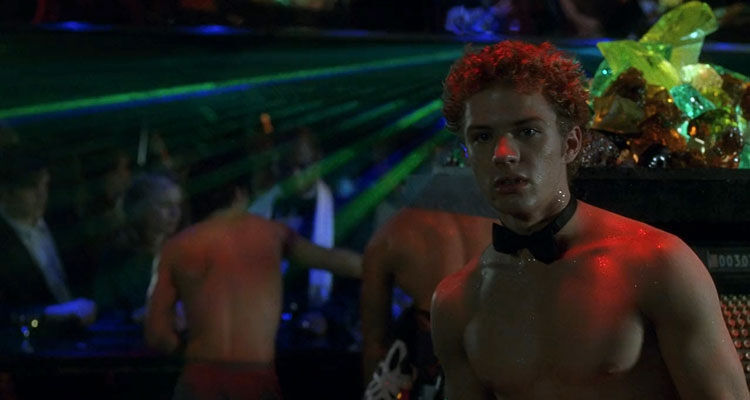
Besides the inherent queer appeal of Studio 54 (the disco anthems, the shirtless boys, partying as a means to escape), the movie has a couple of explicitly gay moments that unfortunately also get sidelined, and in some cases, even cut from the original film.
Steve Rubell is depicted as openly gay (at least giving into his desires inside the club), although the real life counterpart was mostly closeted. Rubell uses sex favors as a way to manipulate his staff members, including Greg and O’Shea, who fight him and give into him, respectively. But other than that, his character’s sexuality never really comes into place in a meaningful narrative way.
We see some gay characters in the background, but the more explicit and homoerotic moments and scenes actually live in the director’s cut of the movie, which was released years after the movie’s original run. In this version, which includes new footage and reassembled some of the existing, O’Shea’s plunge into the Studio 54 lifestyle includes a lot more experimentation. He goes back and forth between male and female dance and sex partners during a montage, confirming what is barely hinted at in the film (and what’s been playing in our imaginations since Cruel Intentions).
Your Disco Needs You
54 does a better job at painting the iconic club as a safe haven for the changing society of the 1970s, rather than openly involving queer characters or stories as deeply as it perhaps could have. But it does make good arguments for why our community keeps gravitating towards the dancefloor over and over. Clubs are, like it’s stated at the beginning of the film, “a world that [is] offered up as reality. Where an eighty year old disco queen [can] play until dawn, where models [mingle] with mechanics, plumbers [dance] with princes. A place where all labels [are] left behind. A place where there [are] no rules.”
We hope your 2024 is filled with spaces that give you the freedom of Studio 54, and you welcome the new year dancing to the greatest hits of disco. Happy New Year!
The original version of 54 is available to stream via Paramount+, though we recommend renting the 54: Director’s Cut via Amazon Prime Video, AppleTV, Google Play, or YouTube TV.

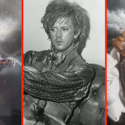

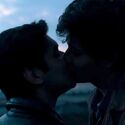


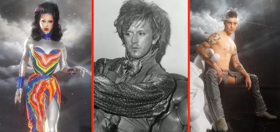
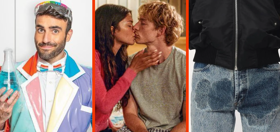

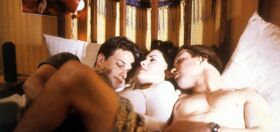
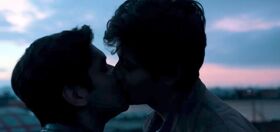





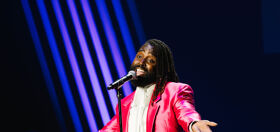
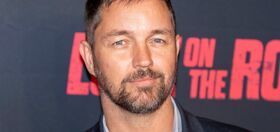

Ellis_gQ
Visit the best place to find intimate encounters…
There are thousands of single boys on this site
Visit -> wvw.gsex.gay
Love321
I don’t know if it’s responsible or honest to say Ryan Phillippe is bisexual. It would get our hopes up and unless Ryan came out of the closet, it’s just not accurate to report him being bi. It should be, “Ring in the new year with bisexual Shane O’shea played by Ryan Phillippe”
theherald
You’re ridiculous.
Aaron
@theherald – Apparently, respecting someone’s identity and labels is ridiculous.
Diplomat
54 is all great fun. Philippe delivers.
SDR94103
bisexual Ryan Phillippe = gay baiter.
[email protected]
well to be fair his ex Reese had the body of a twink.